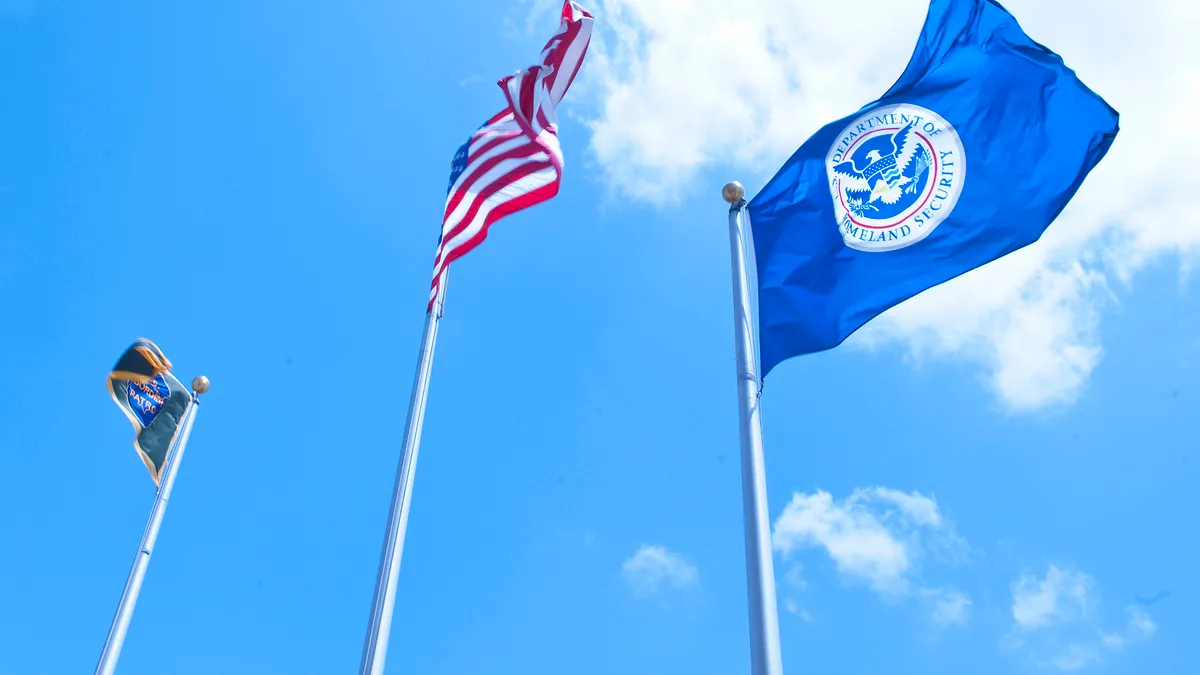UPDATE: April 2, 2020: The U.S. Department of Homeland Security (DHS) will not release additional H-2B visas until further notice, the agency announced in a April 2 tweet, citing current economic circumstances affected by the novel coronavirus.
"DHS is looking at additional measures to protect American workers now and when normal economic activity is able to resume in the future," the agency said in a subsequent tweet.
Dive Brief:
- The U.S. Department of Homeland Security (DHS) will make an additional 35,000 H-2B visas available for the second half of the 2020 fiscal year, the agency announced March 5.
- The visas, which supplement the cap of 33,000 visas already allotted for the second half of the fiscal year, will be made available in two batches, DHS said: 20,000 are available for workers whose start dates begin April 1, and 15,000 are available to those with start dates of May 15.
- Demand for the visas exceeded the 33,000 cap, which was met in November 2019, according to a DHS statement. The agency noted that 10,000 of the released supplemental H-2B visas are specifically designated for nationals of Guatemala, El Salvador and Honduras.
Dive Insight:
DHS' announcement continues a trend in recent years. For the second half of its 2019 fiscal year, the agency released an additional 30,000 H-2B visas, which were available only to employers who could attest that they were "likely to suffer irreparable harm" from a shortage of seasonal workers and to seasonal workers who had previously been granted an H-2B visa. In 2017, DHS approved an additional 15,000 H-2B visas under similar circumstances.
The visas are offered to workers who perform temporary, nonagricultural jobs, and DHS requires employers to file a petition for a visa on the worker's behalf. To qualify, petitioners must establish, among other things, that U.S. workers are not able, willing, qualified or available to perform the work in question; that employing H-2B workers will not adversely affect the wages and working conditions of similarly employed U.S. workers; and that the need for such workers is temporary.
Employers, particularly those with busy seasonal operations, have said that past shortages of the visas hurt business prospects. Those shortages may have led some employers to hire U.S. citizens for seasonal work instead, but this route can also mean raising prices on consumers, Politico previously reported.
Last year, DHS ended its "first come, first served" processing rule for H-2B visas after a change in processing resulted in a system crash. As of November 2019, the Trump administration had completed review of a proposal by the agency to end newspaper posting requirements for employers looking to hire nonimmigrant H-2B visa holders.
Immigration continues to be an area for employers to watch when it comes to immigrant workers at all levels, including those who operate in highly specialized occupations. Comments by former acting White House Chief of Staff Mick Mulvaney in February signaled that the federal government may still be considering changes that would allow U.S. employers to hire more skilled workers from other countries.














